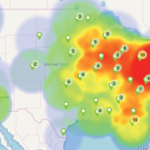The ACR joined with 52 organizations in sending letters to House and Senate leaders thanking bill sponsors for introducing the Healthcare Workforce Resilience Act (HWRA). With the objective of helping ease workforce shortages and increasing access to care in rural and underserved communities, the bill would provide for re-use of up to 40,000 unused employment-based visas for international physicians and nurses over a three-year period. The ACR has been a leader along with partners in its multipronged work to address the rheumatology workforce shortage, including work with Congress to reauthorize and expand the Conrad 30 program.
Under the HWRA, the number of highly trained nurses in the U.S. healthcare system could increase by expediting the visa authorization process for qualified international nurses, who are urgently needed. Despite being approved to come to the United States as lawful permanent residents, many are stuck overseas due to backlogs and other bureaucratic delays.
The legislation would also allow for thousands of international physicians who are currently working in this country on temporary visas with approved immigrant petitions to adjust their status. Foreign-trained physicians are more likely than U.S.-trained physicians to practice in lower-income and disadvantaged communities, even in spite of the well-documented and burdensome delays this legislation seeks to address. This crucial policy change will enable these physicians to continue serving patients and help ensure every American can access needed care.
International Healthcare Workers Support U.S. Patient Care
Immigrants represent a disproportionately high share of the U.S. healthcare workforce—a fact underscored during the coronavirus pandemic, as foreign-born healthcare workers played a significant role in frontline pandemic-response sectors. In 2018, more than 2.6 million immigrants, including 314,000 refugees, were employed as healthcare workers, with 1.5 million working as doctors, registered nurses and pharmacists. Immigrants represent 17% of the overall U.S. civilian workforce but are 28% of physicians.
The H-1B visa is for temporary workers in specialty occupations who hold professional-level degrees. It does not have a two-year home residence requirement. The H-1B visa allows a foreign national to enter the United States for professional-level employment for up to six years. The H-1B visa is available to graduates of foreign medical schools who have passed the necessary examinations, have a license or other authorization required by the state of practice, and have an unrestricted license to practice medicine or have graduated from a foreign or U.S. medical school.
Currently, J-1 visa-holding resident physicians from other countries who are training in the United States are required to return to their home country for two years after their residency has ended before they can apply for a work visa or green card to work in the United States. The Conrad 30 program allows these physicians to remain in the United States without having to return home for two years if they agree to practice in a medically underserved area for three years. The Conrad 30 program helps physicians who are educated and trained in the United States continue to serve in our medical workforce.

